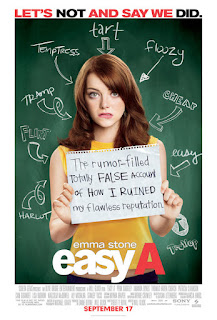Movie Name: Let Them All Talk
Year of Release: 2020
Director: Steven Soderbergh
Starring: Meryl Streep, Candice Bergen, Dianne Wiest, Lucas Hedges, Gemma Chan, Dan Algrant, David Siegel, John Douglas Thompson
Genre: Drama
Score out of ten (whole numbers only): 7
View Trailer
Year of Release: 2020
Director: Steven Soderbergh
Starring: Meryl Streep, Candice Bergen, Dianne Wiest, Lucas Hedges, Gemma Chan, Dan Algrant, David Siegel, John Douglas Thompson
Genre: Drama
Score out of ten (whole numbers only): 7
View Trailer
Synopsis and Review:
The prolific and always fantastic Steven Soderbergh is back, following the two films he released in 2019, "The Laundromat" and "High Flying Bird". His most recent endeavor follows the story of Alice, a famous Pulitzer Prize winning author who has just recently received a literary award in England. Her new agent suggests she takes a cross Atlantic cruise, since it will be safer, and it will give her also an opportunity to finalize the new manuscript she has at hands. The agent, Karen, secretly hopes this new book is a sequel to a best seller Alice had. Alice decides to invite her nephew Tyler to join her on the trip, alongside her two best friends from college, Roberta and Susan, with whom she has lost touch. Roberta in particular harbors some resentment towards Alice, since she feels she appropriated stories and personal information from her life in order to bring to life the best seller which boosted Alice's career. During the cruise, Karen strikes a friendship with Tyler, sparking an amorous interest from him, in order to get information on the progress of Alice's new book. While that is happening, Susan and Roberta are meeting different people, with Roberta in particular trying to get out of the situation her life has become. As they arrive in England, Roberta and Alice have a particularly heated exchange, something which forces Alice to rethink her next endeavor.
"Let Them All Talk" showcases one of the interesting sides of Steven Soderbergh's career, which is all about allowing characters to flourish and simply exist in the moment. Whereas he has touched upon satires (such as "The Laundromat" and "The Informant"), dramas ("King of the Hill", "Erin Brockovich" and even "Traffic"), action (with "Haywire" and even "Logan Lucky"), science fiction (with the underrated "Solaris"), there's always an interesting aspect to his smaller films, the ones where there's an improvisational stance to it, much like "Full Frontal" or "The Girlfriend Experience". These smaller films allow for the actors to focus the attention of what's taking place, which in this case, is all about Alice's journey, both as a person with her foibles, but also about Alice the author, the person receiving an award. On one hand, we witness Alice coming to terms with her past, the friends she left behind and the family who has stood by her, while on the other, we witness the author struggling with relevance, expectations, and moving forward. Woody Allen touched upon a similar topic with "Deconstructing Harry", which is actually one of his most interesting films from the 90s, but Soderbergh removes all artifice and instead, provides a clear look at the life of a well known intellectual, who is ultimately trying to stay relevant, and survive in a world she fears has left her behind. It's a film which allows for great performances from all the cast, with Meryl Streep, Candice Bergen, Dianne Wiest, Lucas Hedges, Gemma Chan, Dan Algrant, all creating vivid characterizations. If anything, the film falters in providing more dimension to the story of some characters, but it's nonetheless an engaging and entertaining film from a truly unique voice in American cinema. Worth watching.





























